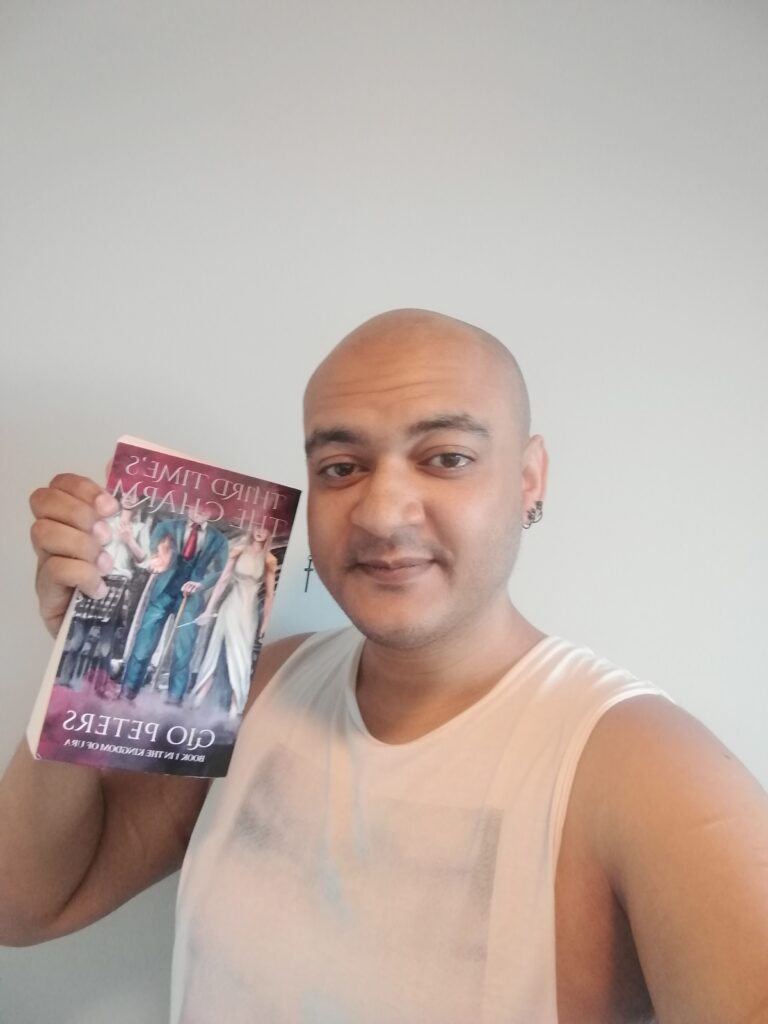The Best Way To Market Your Book – Indie Authors Guide To Self Marketing
I want to start off by saying that I am not an expert when it comes to marketing a book. I have not at this point in time gone through the marketing process for my own book (The Lantern), but I am just putting down what I have seen and heard works for other authors.
It’s always important to be diverse when it comes to book marketing. You might be stuck in a rut and not getting the sales you want; that may be because you’re still only marketing in one place and not branching out. Thankfully, below are a whole host of ways that you can market your book, and most of them are free!
If there are any ways that you’ve found useful in marketing your book that aren’t on the list please let me know and I’ll have to check it out and maybe add it to the list. At the end of the day marketing isn’t easy and it can feel like a horrible chore so it’s important to keep it fresh and change with the times.
How to Market Your Book
Marketing your book effectively requires a mix of online and offline strategies to reach your target audience. Here’s a breakdown of various methods to help you promote your work successfully.
That being said, there is not one size fits all when it comes to marketing your book so if some of the ways below don’t work for you then don’t think it’s your fault or that your book is rubbish. It’s important to play to your strengths and always look at improving or changing tactics.
How to Market a Book on Social Media
I find social media a great tool for marketing your book, but not all of them. Some platforms are perfect for promoting my MM books but at the same time others are terrible, get no tractions and views are terrible. Make sure you do your homework, for example if you have anything that is inclusive, free thinking and imagintive then don’t use Twitter (X).
- Choose the Right Platforms – Focus on where your target audience spends the most time (Instagram, X/Twitter, TikTok, Facebook, etc.). It’s also important to use the right hashtags to increase visibility.
- Engaging Content – Share excerpts, behind-the-scenes insights, character art, or personal stories about the writing process. It’s also important to engage with other authors and book accounts as well as with reviewers. If you can make connections with others they may just share your work with their followers and get it for themselves.
- Host Giveaways – Offer free copies or exclusive content to encourage engagement. Competitions don’t work for everyone and books are a niche so don’t always expect this to work for you.
- Collaborate with Influencers – Partner with book bloggers, YouTubers, and BookTokers to reach a wider audience. Do not spend out loads of money. Some influencers may charge but I would recommend looking at their content and if they have any real engagement or did they just buy followers?
- Go Live – Host Q&A sessions, book readings, or writing discussions. This is a daunting one for me; it all depends on whether you’re comfortable or not. Personally, I don’t as I feel nobody would turn up!
- Run Paid Promotions – Boost important posts or run targeted social media ads. This is a mixed one, some people say paid ads have worked great for them, and others have lost money. Weigh up your options and pick the right social media platform for your target audience if you do decide to go with paid ads.

How to Market Your Book with Newsletters
I hear it time and time again. Do I really need a newsletter? Yes, yes, you do. I would advise that everyone gets a newsletter if you’re planning on A, marketing your book and B, releasing more books, especially if it’s a series! People will want to know, and it will drive sales when they get published.
- Build an Email List – Collect emails via your website, social media, or book giveaways. The more people, the better, and I would suggest pushing your newsletter onto your social media platforms at least once a month so people who aren’t signed up will get the chance.
- Create Valuable Content – Share exclusive updates, early access to new work, or insights about your writing journey. Make your content fun, bold, interesting and on theme. Going off topic might work sometimes, but not every month.
- Offer Freebies – Provide short stories, deleted scenes, or book previews to entice sign-ups. I’ve seen various authors send out a bonus chapter that follows the ending of books which is a great idea, think or something fun that your readers will love.
- Segment Your Audience – Send targeted emails based on reader preferences. If your book is MM romance, let’s not send out emails about sapphic work.
- Use a Strong Call to Action (CTA) – Encourage readers to buy, review, or share your book. If your newsletters aren’t captivating they will just be deleted.
- Keep a Consistent Schedule – Send newsletters regularly but not too frequently to avoid overwhelming subscribers. Some authors go with once a month although I go with one every quarter.
How to Market Your Book Through Ads
Ads are a tricky one, some platforms are great, others not so much. Ads can be costly, and they aren’t for everyone. If you are going to use ads, do your research beforehand, make sure it’s the right platform to target your potential audience and don’t keep paying out if they don’t work.
- Amazon Ads – Target readers searching for similar books.
- Facebook & Instagram Ads – Use visually appealing ads to reach book lovers.
- BookBub Ads – Target an audience already interested in books.
- Google Ads – Capture potential readers searching for specific book-related terms.
- Optimise Ad Copy – Use compelling headlines and engaging visuals.
- Monitor and Adjust – Track performance and tweak campaigns for better results.
How to Market Your Book in Person
I HATE talking about my book, don’t ask me anything in person because I will forget I’ve even wrote anything. That being said, word of mouth is a powerful tool and if you can market in person, great!
- Attend Book Fairs and Conventions – Connect directly with readers and industry professionals. Ensure the conventions that you want to go to actually have your audience attending. If you have a queer book, then maybe a cowboy rally isn’t for you.
- Host Book Signings – Partner with local bookstores or libraries. However, I’ve heard horror stories of nobody turning up, so ensure you push out any book signing on all of your socials, tell EVERYONE you know and make sure it’s in your newsletter!
- Join Writing Groups – Network with fellow authors and potential readers. Always interact with people who comment on your social media posts or email you. Plus, it never hurts to be nice.
- Give Public Readings – Visit community centres, coffee shops, or literary events. This is not something I would do as my dyslexia and anxiety would kick my butt, but if you can do it, do it! It’s a great way to keep readers engaged and find potential new readers.
- Partner with Local Businesses – Sell your book in independent bookstores or themed shops. Make sure they align with your work. If you have a book about the prince finding his princess, an LGBTQ+ bookshop may not be for you.
What to Avoid When Marketing a Book
So marketing your book can be a lot of fun and you learn so much. It’s also important that you ensure you don’t mess it all up. I’ve seen some authors attacking people leaving low reviews, calling people out for not reading their book even though they purchased it and it’s on their TBR. I’ve had people in my inbox telling me I HAVE TO buy their book and review it, which means the last thing I’ll do is buy their book that’s for sure.
Make sure you market right and don’t make any potential readers hate you instead and flea from your book.
- Spamming Your Audience – Don’t over-promote; balance marketing with engagement. This is why if you have a newsletter, don’t send out an email every week, you’ll get more unsubscribes instead of engagement.
- Ignoring Your Target Audience – Focus on readers who would genuinely be interested in your book. Reply to people, be nice to them and engage with your readers. It might be time-consuming at times, but it’ll be worth it. Nobody likes or promotes a moody indie author.
- Poor Cover Design – A weak cover can drive readers away, so invest in professional design. This is the same with poor advertising and social media posts. You will forever be learning how to make fun designs, but if you need help, reach out and ask and look at what others are doing, but don’t copy and paste!
- Neglecting Reviews – Encourage readers to leave reviews; they help with credibility and visibility. DO NOT attack low rated reviews, it will tank any hope you have or getting more people to review your book out of fear and probably hurt your sales as well.
- Ignoring SEO and Keywords – Optimise your book descriptions for search engines. Make sure you write website articles with that in mind and always use correct hashtags on social posts so that you reach your target audience.
- Not Tracking Results – Analyse marketing efforts to see what works and what doesn’t. This is critically important with ads. Don’t keep spending money on something that isn’t working, especially as it’ll make you feel deflated and disheartened.
The Ultimate Way To Market Your Book
I really hope this post was helpful. It’s a great way for indie authors to market their books when they don’t have a huge publishing house behind them. Remember, not all of these tips and tricks will work for everyone and it’s important to get the right marketing tactics for you.
While you’re here, consider buying my book below and leaving a glowing review. Another marketing tip: every sale is a sale and smile! Find my book below and leave a comment if you found this post helpful.






